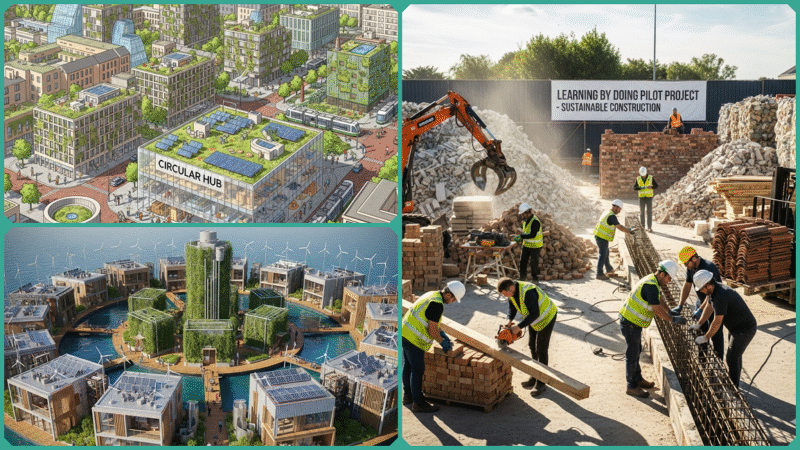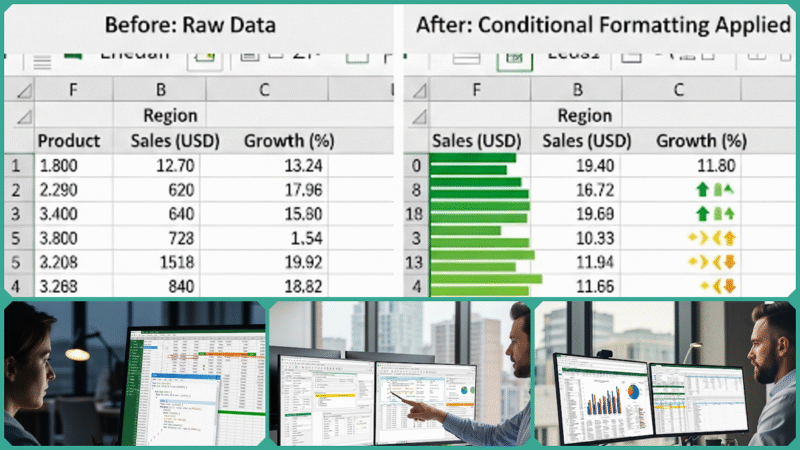Best Guides for Buy-and-Hold Real Estate Investors in Lagos
Estimated reading time: 27 minutes
Lagos is Nigeria’s bustling economic hub that offers abundant and promising opportunities for real estate investors focused on the buy-and-hold strategy. The city’s fast-paced urbanization, alongside major infrastructure developments like the Lekki Free Trade Zone and Dangote Refinery, enhances its attractiveness.
Moreover, the persistent and rapidly expanding housing shortage in Lagos firmly establishes the city as one of Africa’s most compelling and attractive markets for long-term property investment and sustained wealth growth over the coming years.
This ongoing scarcity of adequate housing options continues to drive strong demand, making Lagos a highly promising destination for investors seeking both stability and significant returns in the real estate sector.

Whether you are a budding real estate investor just starting to explore the world of real estate, an experienced landlord managing multiple properties, or someone looking to diversify your sources of income, this comprehensive and detailed guide is designed to provide you with the insights and strategies you need to succeed with buy-and-hold real estate investments, specifically in Lagos.
What Is Buy-and-Hold Real Estate Investing?
Buy-and-hold real estate investing is a strategy where investors purchase property and keep ownership for several years, allowing the asset to appreciate while generating rental income. Unlike the quick turnaround of “fix and flip” investments, buy and hold focuses on long-term wealth accumulation, passive income streams, and capital gains realized as the property appreciates over time.
This strategy proves to be especially effective in Lagos because of a variety of compelling and influential factors that contribute to its success:
- Fast Property Appreciation: Lagos has a large and growing population with limited land availability. Areas with strong infrastructure and development projects, such as Lekki Phase 1, have seen land values multiply significantly—sometimes more than 20-fold over the last two decades. This long-term appreciation creates substantial capital gains for patient investors.
- Steady Rental Income: Lagos faces a persistent housing deficit with millions seeking accommodation. This keeps demand for rental properties strong, especially near commercial hubs and major infrastructure corridors, ensuring investors a reliable income stream alongside appreciation.
- Inflation Hedge: Real estate investments in Lagos generally tend to outperform inflation rates, effectively safeguarding investors’ purchasing power over time. This asset class not only helps protect against the eroding effects of inflation but also provides a dual benefit of generating consistent income streams alongside promising long-term capital appreciation and growth potential.
According to recent analysis, Lagos real estate prices increased by approximately 39.5% in 2024 and are forecasted to continue rising by 5-15% annually through 2025. Key investment hotspots such as Ibeju-Lekki, Epe, Ikoyi, Victoria Island, and Lekki benefit from ongoing infrastructure projects, including the Lekki Free Trade Zone, Dangote Refinery, international airports, and improved transport links, which enhance property values and rental demand.
This dynamic and ever-evolving market environment makes the buy-and-hold strategy an ideal and highly effective approach for investors who are looking to build wealth steadily and securely over time, while also capitalizing on the rapid urbanization and significant economic growth taking place in Lagos.
By adopting this strategic method, investors stand to greatly benefit from the consistent long-term appreciation of property values, as well as from the continuous and dynamic development that characterizes and drives growth in this vibrant and rapidly evolving city.
Key Concepts and Essential Terminology
Here are the key concepts along with the essential terminology that every buy-and-hold real estate investor in Lagos should be familiar with, all supported by the most recent data and in-depth market insights specifically relevant for the year 2025:
Rental Yield
Rental yield is the annual rental income generated from a property, expressed as a percentage of the property’s original purchase price. This metric is used to measure and evaluate how much income an investment property can produce about the amount initially spent to acquire it. It provides investors with a clear understanding of the return they can expect from their investment over a year compared to the property’s cost.
- In Lagos, mid-market residential properties typically yield between 6% and 8% annually in 2025, which is considered attractive compared to other investment classes locally.
- For luxury properties, such as those in Ikoyi, Victoria Island, and Lekki Phase 1, rental yields average around 5.5%, slightly lower due to higher property prices but compensated by strong capital appreciation and demand for short-let accommodations.
- Rental yields can vary widely by location, property condition, and tenant profile, with emerging areas sometimes offering higher yields due to lower entry prices.
Capital Appreciation
Capital appreciation refers to the gradual increase in the value of a property over an extended period of time, which generates the opportunity for substantial profit when these properties are eventually sold in the market. This increase in property value is influenced by various factors such as location, market demand, and improvements made to the property, all contributing to the potential financial gain for the owner.
- Lagos markets like Ibeju-Lekki and Epe have experienced land price increases exceeding 300% in the last decade, driven by infrastructure projects like the Lekki Free Trade Zone and the Dangote Refinery.
- Overall property price growth in Lagos is forecast to range from 5% to 15% annually in 2025, with prime areas like Lekki Phase 1 experiencing especially strong growth of 10-15% per year.
- Appreciation potential is highest in emerging neighborhoods, where planned infrastructure and urban expansion create future demand but also come with greater risk.
Due Diligence
Due diligence involves the thorough and careful verification of all legal documents, ownership records, and physical conditions of the property before making a purchase decision. This process is essential to avoid any potential fraud or disputes that could arise after the transaction is completed. It ensures that the buyer fully understands the property’s status and any associated risks.
- Key documents to verify in Lagos include the Certificate of Occupancy (C of O), Governor’s Consent, and the registered title deed.
- Investors are advised to avoid informal land sales without proper documentation and work with reputable agents, surveyors, and legal professionals to confirm ownership.
- Due diligence also includes checking for liens, encumbrances, or pending disputes that could affect ownership or transfer.
Emerging Markets
These are neighborhoods or suburbs that are currently experiencing rapid and significant development as well as urbanization. They are often located outside the original core areas of the city, expanding the urban footprint and transforming previously less developed regions into vibrant, growing communities.
- In Lagos, areas such as Ibeju-Lekki, Epe, Sangotedo, and Ajah represent strong emerging markets offering high capital appreciation potential and attractive yields but may have less immediate infrastructure and more investment risk.
- Emerging markets typically require a longer holding period and a patient investor outlook, but can yield outsized returns due to land scarcity and development projects.
In summary:
- Rental yields typically range between 6% and 8% for mid-market properties, reflecting a solid return on investment in this segment. In contrast, luxury properties generally offer slightly lower yields, averaging around 5.5%, due to their higher purchase prices and different demand dynamics. These figures provide a useful benchmark for investors evaluating potential rental income across different property categories.
- Capital appreciation typically ranges from 5-15% annually across the entire citywide market; however, in key emerging areas, recent growth has exceeded 300%, showcasing significant investment potential and rapid value increases in these specific locations.
- Due diligence is crucial when it comes to verifying all legal titles associated with a property, as this process helps to ensure that there are no discrepancies or issues that could arise later. It is essential to thoroughly check and confirm that all titles are properly registered and that the land in question is not unregistered, which could otherwise lead to significant complications or legal disputes in the future. Taking the time to conduct comprehensive due diligence safeguards your investment and provides peace of mind by confirming the legitimacy and clarity of ownership.
- Emerging markets present investors with the opportunity for significantly higher upside potential compared to more developed markets; however, they also demand a much more careful and thorough approach to risk management due to their inherent volatility and unique economic challenges.
This vocabulary and understanding form the essential foundation for anyone looking to pursue a Lagos buy-and-hold real estate investment strategy. Having a solid grasp of these terms and concepts is crucial for making informed decisions and successfully managing properties over the long term in this dynamic market.
Emerging Trends and Key Real Estate Developments in Lagos
Here is an updated and comprehensive overview that highlights the current trends and key hotspot areas specifically for buy-and-hold real estate investors in Lagos in the year 2025, supported by relevant and up-to-date market data as well as recent developments in the region:
| Area | Property Type | Average Price (2025) | Rental Yield | Appreciation Forecast | Unique Features |
|---|---|---|---|---|---|
| Ikoyi | Luxury Apartments/Homes | ₦150M – ₦1.5B | 5-8% | 5-8% | Prestigious, high expatriate demand, waterfront, and gated estates |
| Victoria Island | Apartments/Commercial | ₦100M – ₦150M | 5-8% | 5-8% | Central business district, high commercial activity |
| Lekki Phase 1 | Residential/Mixed Use | ₦60M – ₦100M | 6-8% | 10-15% | Luxury estates, close to Lekki Free Trade Zone, burgeoning short-let market |
| Ibeju-Lekki/Epe | Land/New Homes | ₦5M – ₦40M per plot | 6-8% (rental) | 15-20% | Rapid growth from the Lekki Free Trade Zone, the Dangote Refinery, upcoming international airport |
| Yaba/Surulere | Apartments/Homes | ₦35M – ₦45M | 8-10% | 8-10% | Nigeria’s tech hub is growing, growing a young professional rental demand |
| Sangotedo | New Developments | ₦25M – ₦150M | 6-8% | 25-30% | Proximity to Lekki Free Trade Zone, improving infrastructure, expanding middle-class residential |
Key market drivers include the Lekki Free Trade Zone’s industrialization, Dangote Refinery’s workforce-driven housing demand, the Lagos International Airport construction near Epe, boosting accessibility and land values, and the Lagos Rail Mass Transit improving connectivity for tech and traditional hubs like Yaba and Surulere.
These distinct zones offer investors choices aligned to different goals: luxury stability and prestige in Ikoyi and Victoria Island; high-growth land banking and residential development in Ibeju-Lekki, Epe, and Sangotedo; and vibrant rental yield and tech-related demand in Yaba and Surulere.
For buy-and-hold investment strategies in Lagos in the year 2025, it is crucial to carefully evaluate factors such as proximity to key infrastructure, current and projected demographic trends, and the specific types of properties available.
Paying close attention to these elements will help investors optimize both rental income and long-term capital appreciation, ensuring a more profitable and sustainable investment experience in this dynamic market.
The Influence of Mega Projects on the Lagos Real Estate Market
The Lekki Free Trade Zone (LFTZ) and the Dangote Refinery are two monumental mega projects that are profoundly reshaping and transforming the real estate landscape of Lagos. These developments are not only altering the physical and economic environment of the city but are also generating a vast array of significant opportunities for buy-and-hold investors looking toward 2025 and the years that follow.
Lekki Free Trade Zone (LFTZ)
- Scale and Economic Powerhouse: The LFTZ covers an expansive area of approximately 16,500 hectares, which is nearly 21 times larger than the landmass of Victoria Island. This vast size positions it as Nigeria’s foremost special economic zone, specifically designed to significantly boost export activities, attract substantial foreign investment, and create a wide range of employment opportunities for the local population.
- Infrastructure Marvel: The zone boasts state-of-the-art, cutting-edge infrastructure that is set to transform the region. This includes West Africa’s largest deep-sea port, which is slated to become fully operational by 2025. Additionally, there are significantly expanded highways that improve and extend the Lagos-Ibadan Expressway, facilitating smoother and faster transportation. Complementing these developments is the ambitious proposal for a $1 billion international airport, designed to boost global accessibility. Collectively, these major infrastructure projects will drastically enhance connectivity, streamline logistics operations, and significantly improve the overall capacity for trade and transportation in the area.
- Real Estate Impact: As a direct result of the ongoing developments, land prices in Ibeju-Lekki and its surrounding areas within the Lekki Free Trade Zone (LFTZ) have experienced a remarkable surge, increasing by as much as 300% over the past several years. This dramatic rise has effectively transformed these suburbs into highly lucrative real estate goldmines, attracting significant interest from investors and developers alike. Those early investors who were fortunate enough to purchase land in this region have witnessed substantial capital appreciation, greatly enhancing the value of their property holdings over time.
- Job Creation and Housing Demand: Over 100,000 new jobs are projected to be generated by the year 2030 across key industries such as manufacturing, technology, and logistics within the designated zone. This significant increase in employment opportunities is driving a rapidly growing demand for a range of housing options, including affordable rental units, secure gated communities, and well-designed commercial spaces. These needs are particularly pressing in nearby areas like Sangotedo, Epe, and Akodo, which are expected to experience substantial growth and development as a direct result of the expanding job market.
- Tax Incentives and Business Growth: Businesses operating within the zone benefit from significant financial advantages, including a complete exemption from corporate tax for a substantial period of 10 years. Additionally, they enjoy duty-free imports, which considerably reduce operational costs, and are allowed 100% foreign ownership, making the zone highly attractive to multinational corporations such as Dangote. These incentives collectively contribute to the creation and sustenance of a dynamic and thriving economic hub, which not only supports diverse business activities but also fosters the development of a comprehensive housing ecosystem tailored to meet the needs of the growing workforce and their families.
- Future Outlook: By the year 2030, the LFTZ is projected to be fully operational, featuring a significantly expanded range of commercial real estate options, a larger number of residential developments, and greatly enhanced public transportation systems. These improvements will create a unique and rare opportunity for buy-and-hold investors who are looking to achieve substantial capital gains supported by robust demand fundamentals and a growing economic environment.
Dangote Refinery
- Industrial Catalyst: Situated near Ibeju-Lekki within the Lekki Free Trade Zone (LFTZ), the Dangote Refinery stands as one of the largest industrial projects globally, boasting an impressive budget of $17 billion. This massive refinery has significantly transformed the surrounding real estate market, creating a ripple effect by attracting thousands of skilled workers, contractors, and a wide range of ancillary businesses that support refinery operations. The presence of this industrial giant has spurred rapid development and economic growth in the area, reshaping the local landscape and boosting demand for residential, commercial, and service infrastructure.
- Population and Rental Demand Surge: The establishment of the refinery has led to a significant increase in the workforce population, all of whom require suitable accommodation, retail options, and various essential services. This growing demand has, in turn, driven up rental yields and boosted resale values in the neighboring towns, particularly in areas such as Sangotedo, Epe, and Ibeju-Lekki, making these locations increasingly attractive for both residents and investors alike.
- Infrastructure Upgrades: Government-led infrastructure projects associated with the refinery—including extensive road expansions, significant utilities upgrades, and comprehensive security improvements—have greatly enhanced both the overall liveability and the investment attractiveness of the surrounding region. These developments have not only improved daily conveniences for residents but have also created a more robust foundation for future economic growth and community well-being.
- Long-Term Growth: Housing developments situated close to the refinery provide investors with a reliable and consistent source of rental income. Additionally, these properties present excellent opportunities for significant price appreciation over time, especially as industrial activity in the surrounding area continues to grow and intensify. This combination makes investing in such housing developments a promising strategy for long-term financial gains.
Summary
Both projects are significantly reshaping Lagos’s real estate market by introducing innovative developments that are transforming the urban landscape.
- Significantly increasing land and property values in nearby and surrounding suburbs—with impressive appreciation rates frequently exceeding 15-20% on an annual basis, reflecting strong market growth and investment potential.
- Fueled by extensive infrastructure development, significant job creation, and notable demographic shifts that collectively generate strong rental demand and contribute to sustained long-term economic stability and growth in the region.
- Encouraging robust commercial and residential real estate development, actively promoting sustainable growth and modern infrastructure to ensure these areas become future-proof, resilient, and highly attractive for long-term buy-and-hold investors seeking reliable and profitable opportunities.
Investors who strategically focus on acquiring properties located near the Lekki Free Trade Zone and the Dangote Refinery have a significant opportunity to benefit from some of Nigeria’s largest and most impactful industrial expansions. These developments are expected to drive substantial growth and create a surge in demand within the surrounding real estate markets.
By positioning themselves close to these major industrial hubs, investors can take advantage of the increased economic activity, infrastructure improvements, and rising property values that typically accompany such large-scale projects, ultimately benefiting from the associated real estate booms in the region.
Step-by-Step Guide for Lagos Buy and Hold Investors
Here is a comprehensive and detailed step-by-step guide specifically designed for buy-and-hold real estate investors operating in Lagos in the year 2025, thoughtfully integrating best practices alongside valuable market-specific insights to help you navigate this dynamic environment with confidence and success:
Research and Pick the Right Location
- Analyze Local Trends: Study demographic growth, economic drivers, and infrastructure projects shaping neighborhoods. Lagos hotspots such as Ibeju-Lekki, Epe, Lekki Phase 1, Yaba, and Sangotedo offer diverse opportunities.
- Visit in Person: Nothing replaces a first-hand feel for the neighborhood’s security, amenities, road access, and tenant profile.
- Prioritize Infrastructure: Areas with ongoing or planned projects like the Lekki Free Trade Zone, new airports, rail transit, and expanded highways tend to appreciate faster and offer better rental potential.
Verify and Acquire Secure Title
- Insist on Key Documents: Always confirm ownership with a valid Certificate of Occupancy (C of O), Governor’s Consent, and registered title deeds.
- Avoid Risky Land: Be wary of “Omonile” or family lands without full government paperwork, as these carry higher legal risks.
- Engage Professionals: Use qualified surveyors, real estate lawyers, and reputable agents to conduct thorough due diligence and validate property history.
Decide Between Land and Developed Property
- Land: Lower entry cost, minimal maintenance, and high potential appreciation, especially in fast-developing suburbs like Ibeju-Lekki and Epe. Patience is key.
- Developed Property: Provides immediate rental income and cash flow. Ideal for investors needing steady monthly returns and quicker ROI. Consider apartments in Yaba, Lekki Phase 1, or Ikoyi.
Maximize Rental Value
- Regular Maintenance: Keep properties well-maintained to attract and retain quality tenants, minimizing vacancy periods.
- Amenities & Security: Provide essential amenities such as reliable power supply, water, and security systems. These factors significantly boost desirability and rental rates.
- Leverage Short-Let Markets: Central locations such as Victoria Island, Lekki Phase 1, and Ikoyi can benefit from Airbnb or corporate short-term rentals, enhancing monthly rental income.
Optimize Property Management
- Tenant Engagement: Respond promptly to inquiries and maintenance requests to build tenant satisfaction and reduce turnover.
- Routine Services: Schedule regular checks on plumbing, electrical systems, and landscaping to prevent costly repairs.
- Legal Lease Agreements: Use clear, registered leases outlining tenant and landlord responsibilities.
- PropTech Tools: Adopt technology solutions for rent collection, tenant screening, digital contracts, and property monitoring for operational efficiency.
Monitor Market Trends and Policy Updates
- Stay Informed: Keep up with Lagos real estate regulations, land reforms, tax policies, and rental market changes via trusted news, professionals, or real estate platforms.
- Watch Infrastructure Shifts: New roads, airport expansions, rail projects, or economic zones can rapidly change neighborhood dynamics and property values.
- Evaluate Gentrification: Monitor urban renewal initiatives and commercial investments that drive neighborhood desirability and rental demand.
By carefully following these methodical and well-structured steps, Lagos buy-and-hold investors can successfully navigate the city’s often complex and dynamic real estate market, effectively mitigate various potential risks, maximize their rental income and yields, and strategically leverage the significant appreciation potential of properties for substantial long-term wealth creation and financial growth.
This carefully tailored guide provides investors — ranging from complete beginners to experienced and seasoned players — with practical, actionable insights specifically focused on the Lagos real estate market. It is designed to help you successfully implement buy-and-hold real estate investment strategies throughout the year 2025 and beyond.
Case Study: Emmanuel’s Successful Buy-and-Hold Investment in Ibeju-Lekki
Emmanuel, a dedicated engineer living abroad as part of the Nigerian diaspora, began a long-term real estate investment journey back in the year 2013. During that period, he made a strategic decision to purchase two plots of land located in Ibeju-Lekki, each plot costing around ₦1.8 million.
At that time, Ibeju-Lekki was widely regarded as a peripheral area with relatively limited development and infrastructure. However, the location showed significant promise because of its proximity to planned and upcoming major infrastructure projects that were expected to boost the region’s growth and value over time.
Key Developments Driving Growth
- Lekki Free Trade Zone (LFTZ): Since 2013, the LFTZ has emerged as a massive economic hub, spanning over 16,500 hectares and heralding industrial, commercial, and residential growth.
- Dangote Refinery: Opening in Ibeju-Lekki created thousands of jobs, catalyzing demand for housing and amenities.
- Infrastructure Projects: New roads, highways, and planned international airports dramatically increased accessibility, raising property desirability.
Investment Outcomes (2013–2025)
- Capital Appreciation: By 2025, the value of each of Emmanuel’s plots had soared to over ₦25 million, representing an approximate 14-fold increase from his original purchase price. Industry reports indicate prices in Ibeju-Lekki have surged between ₦5 million and ₦40 million per plot, depending on exact location, confirming his investment’s strong appreciation.
- Land Leasing for Passive Income: Rather than leaving the plots idle, Emmanuel leased them to developers engaged in projects like construction camps and equipment storage. This generated steady rental income during the holding period, improving cash flow without ownership loss or sale.
- Long-Term Wealth Creation: Emmanuel exemplifies patient, data-driven investing—leveraging infrastructural foresight to build substantial wealth over time without speculative risks.
Broader Market Context
- According to the State of Lagos Housing Market Report 2025, land prices in Ibeju-Lekki rose from an average range of ₦500,000–₦1.5 million in 2013 to ₦25 million–₦40 million by early 2025.
- This 40-fold appreciation aligns with major developments transforming the zone, making it one of the fastest-growing real estate corridors in Lagos.
- The Ibeju-Lekki corridor continues to attract diaspora investors like Emmanuel, who recognize the potential of buying land early in emerging growth areas linked to mega-projects.
Lessons from Emmanuel’s Buy and Hold Strategy
- Early Entry Pays Off: Investing before major commercial or infrastructure developments often leads to outsized capital gains.
- Leverage Local Knowledge and Trends: Understanding Lagos’s expansion plans, including economic zones and industrial projects, is critical.
- Generate Passive Income During Holding: Leasing unused land or property can fund maintenance costs and improve investment viability.
- Be Patient: Real estate appreciation in emerging Lagos neighborhoods can take years but generally trends sharply upward.
This case study provides a highly compelling and insightful real-world example specifically tailored for aspiring buy-and-hold investors based in Lagos, with a particular focus on those targeting rapidly developing and emerging suburbs such as Ibeju-Lekki.
Emmanuel’s strategic investments clearly illustrate how adopting a disciplined, well-informed, and patient approach can lead to remarkably impressive and sustainable returns, even within the fast-paced and ever-evolving landscape of Lagos’s dynamic property market.
Risks and How to Mitigate Them
Here are the main risks commonly associated with buy-and-hold real estate investing in Lagos, along with practical and effective mitigation strategies specifically tailored to address the unique challenges of the local market:
Land Disputes
- Risk: Unregistered or improperly documented properties often lead to ownership conflicts in Lagos. Lack of formal government consent and unclear land titles are common triggers.
- Mitigation: Always insist on legally recognized documents such as the Certificate of Occupancy (C of O), Governor’s Consent, and registered Deed of Assignment. Conduct thorough due diligence by:
- Hiring qualified surveyors and real estate lawyers to verify ownership and confirm land boundaries.
- Avoiding “Omonile” lands sold informally without complete government documentation.
- Using digital platforms and government registries to validate land records.
Market Fluctuations
- Risk: Lagos property values can fluctuate based on economic cycles, policy changes, or oversupply in certain areas, which may temporarily lower rental yields and resale values.
- Mitigation:
- Focus on established or rapidly developing neighborhoods with strong, persistent demand driven by urbanization and infrastructure projects (e.g., Lekki Free Trade Zone, Dangote Refinery corridors).
- Diversify your portfolio across different zones and property types to reduce exposure to localized downturns.
- Monitor macroeconomic indicators and Lagos real estate market reports regularly.
Liquidity Challenges
- Risk: Real estate is inherently less liquid than stocks or bonds; it may take months or years to sell a property at the desired price in Lagos’s market.
- Mitigation:
- Adopt a long-term buy-and-hold strategy, prioritizing steady rental income over quick resale profits.
- Invest in properties with high rental demand to generate cash flow during holding periods.
- Consider properties in well-connected locations where buyer interest remains consistent.
Regulatory Changes
- Risk: Lagos state may update land acquisition policies, tax laws, rent controls, or building codes, potentially impacting profitability or ownership rights.
- Mitigation:
- Stay informed by subscribing to official Lagos government portals, real estate industry publications, and legal updates.
- Work with legal professionals and real estate advisors who monitor and interpret regulatory changes.
- Structure your investments to accommodate compliance costs and tax liabilities.
Summary
Buy-and-hold real estate investing in Lagos carries typical market risks, but most pitfalls can be effectively managed through diligent research, legal verification, smart neighborhood selection, and adopting a patient, income-focused investment outlook. Keeping abreast of market and policy trends further safeguards investments, positioning investors for sustainable wealth growth.
This comprehensive risk management approach is absolutely essential for achieving success in Lagos’s vibrant, dynamic, and often complex property market. By carefully identifying and mitigating potential risks, investors and developers can navigate the challenges unique to this fast-paced environment more effectively.
Advanced Tips for Experienced Real Estate Investors
Experienced buy-and-hold real estate investors in Lagos have the opportunity to significantly maximize their returns and effectively future-proof their investment portfolios by adopting a range of advanced and innovative strategies that are specifically tailored to address the unique challenges and dynamic realities of today’s ever-evolving market environment.
Leverage and Financing
- Strategic Borrowing: While mortgage interest rates in Nigeria can be high, leveraging (using borrowed funds) allows investors to control larger assets and amplify gains. To offset risk and costs:
- Explore joint ventures, real estate syndicates, or co-investment clubs—pooling resources spreads risk and makes bigger deals accessible.
- Compare options from banks, microfinance institutions, and private lenders, always negotiating terms and factoring all fees.
- Use home equity from existing properties to acquire new assets, maintaining liquidity for emergencies.
Portfolio Diversification
- Asset Mix: Effectively reduce and manage market-specific risks by maintaining a diversified portfolio that includes a well-balanced combination of:
- Land parcels in emerging corridors (like Epe or Ibeju-Lekki) for long-term appreciation.
- Residential units in high-demand areas for rental yield and steady cash flow.
- Commercial properties or shop spaces benefiting from Lagos’s retail and SME boom.
- Creative Investments: Embrace a variety of alternative investment models such as:
- Rent-to-own properties expand your tenant pool and may command premium prices.
- Co-living developments—especially attractive to Lagos’s young, tech-savvy population and students—offer higher per-room rents and lower vacancy risk.
Smart Homes & Technology-Driven Assets
- Modernization Premium: Properties equipped with smart home features (remote locks, CCTV, solar panels, mobile app integrations) and high-speed internet command higher rents and reduced vacancy, particularly in upmarket areas and among younger professionals.
- Tech Tools for Management: Embrace and implement a variety of innovative proptech solutions designed specifically for:
- Automated rent collection
- Digital leasing and tenant verification
- Maintenance tracking and communication
- Short-Let and Flexible Models: Tech-enabled short-let platforms (Airbnb-style rentals) are thriving in central districts like Victoria Island and Lekki Phase 1, where rental yields can surpass traditional long-term lets.
Additional Expert Tips for Seasoned and Advanced Investors
- Monitor Emerging Trends: Stay updated on smart infrastructure, renewable energy initiatives, and government-backed tech hubs—these can signal next-wave appreciation zones.
- Scalable Strategies: As your portfolio grows, consider forming an SPV (Special Purpose Vehicle) or small investment fund for collective ownership and professional management.
- Tax and Legal Optimization: Work with specialized real estate attorneys and accountants to structure deals for capital gains efficiency, inheritance planning, and regulatory compliance.
Key Takeaway:
Combining leverage, diversified asset classes, and technology-driven strategies positions advanced Lagos real estate investors to capture both today’s rental income and tomorrow’s capital gains. Proactive adaptation—embracing tools, trends, and financial structures—ensures sustainable, resilient portfolio growth in Lagos’s fast-evolving market.
For personalized and tailored advice that suits your specific needs, you can consult with experienced local real estate consultants who have in-depth knowledge of your area. Additionally, leveraging fintech-enabled property management services can help you stay competitive and well-informed in the dynamic market of 2025 and beyond.
These cutting-edge services seamlessly integrate advanced financial technology with extensive property management expertise, offering you comprehensive and up-to-date insights along with strategic guidance. This combination empowers you to make well-informed and confident decisions regarding your investments and property management strategies.
FAQs
What’s the minimum capital required for buy-and-hold in Lagos?
Entry-level land parcels in emerging areas like Epe or Ibeju-Lekki start around ₦5 million, while developed properties in prime locations such as Lekki Phase 1 or Victoria Island typically cost between ₦35 million and ₦150 million, depending on size and amenities.
Which Lagos areas offer the best appreciation potential?
The top hotspots for capital growth currently include areas such as Ibeju-Lekki, Epe, Lekki Phase 1, Sangotedo, and Yaba. These locations are experiencing significant increases in value, largely driven by ongoing infrastructure developments, including major projects like the Lekki Free Trade Zone and the Dangote Refinery.
Additionally, the growth of expanding technology ecosystems in these regions is playing a crucial role in attracting investment and boosting property values. Together, these factors are making these areas highly attractive for capital growth opportunities.
How much rental income can I expect?
Mid-market residential properties generally provide an annual yield ranging from 6% to 8%, making them a popular choice among investors seeking steady returns. In contrast, luxury apartments located in prime areas such as Ikoyi or Victoria Island tend to offer a slightly lower average rental yield of about 5.5% per year, reflecting the premium nature and higher property values in these upscale neighborhoods.
How can I avoid legal disputes?
Only purchase properties with clear government-issued titles such as Certificates of Occupancy and Governor’s Consents. Always perform due diligence with professional real estate lawyers and agents to verify ownership and avoid scams common in informal sales.
Is it better to buy land or a developed property?
- Land: Offers higher long-term appreciation and lower maintenance costs but requires patience as it generates no immediate income.
- Developed Properties: Provide immediate rental income and faster cash flow, with generally less risk of market illiquidity, ideal for investors seeking monthly returns.
In Conclusion
Buy-and-hold real estate investing in Lagos represents one of the most effective strategies for long-term wealth creation in Nigeria’s largest and most dynamic city. Fueled by consistent property value appreciation, attractive rental yields, and a surging population, the Lagos market rewards investors who take a patient, strategic approach.
Key essential ingredients for achieving success in Lagos’s buy-and-hold real estate market:
- Meticulous Due Diligence: Always confirm the authenticity of property titles (such as the Certificate of Occupancy or Governor’s Consent) and utilize reputable agents, surveyors, and legal professionals to verify ownership and avoid land disputes.
- Careful Area Selection: Seek out neighborhoods linked to strong infrastructure projects and economic zones—such as Ibeju-Lekki, Epe, Lekki Phase 1, Yaba, Sangotedo, and Victoria Island—which consistently offer high capital appreciation and resilient rental demand.
- Proactive Property Management: Maintaining properties, promptly addressing tenant needs, leveraging technology for rentals and management, and utilizing short-let strategies in prime locations help maximize both rental income and long-term value.
- Staying Updated: Regularly track market trends, regulatory changes, and major infrastructural developments to make informed, forward-looking decisions.
By following these best practices, investors can build resilient property portfolios that generate steady cash flow and appreciate alongside Lagos’s rapid urbanization. Those focused on high-growth, infrastructure-led corridors benefit most, but steady performance is also achievable in established districts.
Whether you are a beginner or looking to expand your holdings, Lagos’s property market is primed for disciplined, informed investors. With the right knowledge, trusted partners, and a willingness to be patient, you can position yourself not only for strong returns but also for generational wealth—solidifying your place in Africa’s megacity of the future.
Discover more from Skill to Grow
Subscribe to get the latest posts sent to your email.






